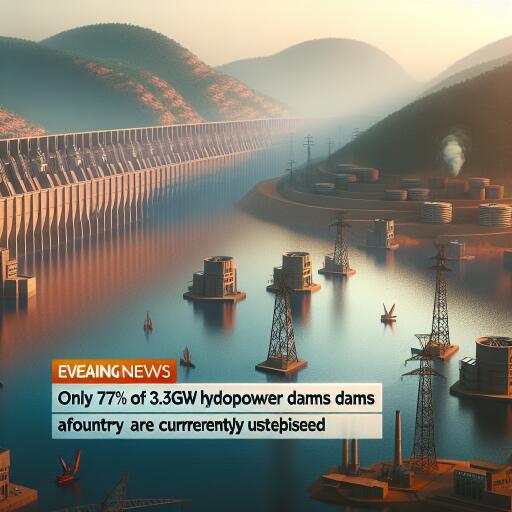
Unlocking Nigeria’s Hydropower Potential: A Leap Towards Sustainable Energy
In an insightful discourse at a recent high-profile event in Abuja, the esteemed Nigerian Minister of Power, Chief Adebayo Adelabu, shed light on the nation’s current standing in the realm of hydropower utilization. Despite boasting a robust capacity of 3.6GW in hydropower through its dams, Nigeria harnesses a mere 1.7 percent of this potential. This revelation came during the Africa High-level Roundtable on Sustainable Hydropower, an initiative aimed at integrating renewable resources effectively into the continent’s energy fabric.
The continent of Africa, abundant in natural resources, holds a significant portion of the world’s untapped hydropower. Nigeria, a key player in this scenario, has explored only about 15 percent of its estimated 14GW hydropower capacity, highlighting a substantial gap in tapping into this renewable resource.
Amid global energy debates, the minister pointed out the vivid contrast in hydropower exploitation across continents. While Europe and North America have capitalized on 53 percent and 39 percent of their hydro resources respectively, Africa lags with a scant 11 percent utilization out of an immense 340 GW potential. This discrepancy underscores an urgent need for Africa, particularly Nigeria, to harness its hydropower for both economic growth and to bridge the significant energy access gap. Currently, over 600 million Africans lack electricity, with Nigeria accounting for a large share of this deficit.
Nigeria’s portfolio of completed hydropower projects, including the Kainji, Jebba, Shiroro, Mabon, Zungeru, and Kashimbila dams, reflects the nation’s efforts in hydroelectric development. Yet, the existence of over 340 dams across its terrain, many underutilized or in disrepair, coupled with the mere 0.06GW tapped from potential small hydropower resources, signals a vast untapped opportunity.
In alignment with the Nigeria Energy Transition Plan, the government has set forth ambitious goals. By 2030, it aims to make available 30GW of electricity, 30 percent of which is to be derived from renewable sources. This endeavor is not just about meeting energy demands but is also crucial for Nigeria’s commitment to reducing greenhouse gas emissions as stipulated in its Nationally Determined Contribution.
To actualize these targets, initiatives like the Sustainable Power and Irrigation Project (SPIN) have been conceived in collaboration with international partners. SPIN seeks to enhance the utilization of existing dams for both irrigation and power generation, embodying a strategic move towards sustainable development and integrated water resources management.
Chief Adelabu underscored the importance of adopting responsible and sustainable approaches towards hydropower development. Addressing environmental and social impacts, ensuring stakeholder engagement, and seeking innovative financing mechanisms are pivotal in realizing the potential of hydropower in Africa.
As Nigeria strides towards a future of sustainability and energy security, the commitment to exploit the nation’s hydropower resources responsibly is paramount. It’s a journey towards not merely constructing dams but forging a path to a brighter, cleaner energy future for Africa. The minister’s vision encapsulates more than an energy strategy; it’s a blueprint for empowerment, economic growth, and environmental stewardship, aimed at lighting up lives today and for generations to come.
With vast hydropower resources at its disposal, Nigeria stands on the cusp of a renewable energy revolution. By leveraging these assets effectively, the nation can provide a sustainable solution to its energy woes, catalyzing progress and illuminating the path towards a prosperous, energy-secure future for all Africans.





Leave a Reply